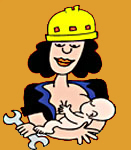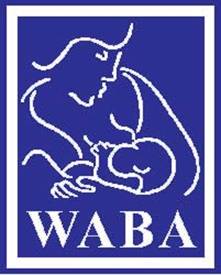WHAT IS THE ISSUE
 The issue of Women and Work is about enabling women to successfully combine their reproductive and productive roles. It is a health issue, an economic issue, a labour issue, and a human rights issue. Today, more and more women of child-bearing age are working outside the household, in work that keeps them far from home for long hours and with rigid schedules. Increasingly, women are seen as independent economic units, responsible for their own economic survival and well-being. According to the United Nations Development Programme, women are responsible for 53% of the world’s total working hours, compared to 47% for men. While 75% of men’s work is paid, only about a third of women’s work is rewarded with cash. Since the definition of economic activity often excludes unpaid work such as subsistence agriculture, housework and child care etc., the actual figures for women at work are greater. Time-use studies have shown that women spend more time in work overall, spend fewer hours in paid work and in general have less discretionary time than men do. Women spend more time than men doing unpaid care work and housework, with multiple and overlapping activities, such as childcare, cooking and cleaning. Economic value of women’s contribution is low in the national economy and reproductive work is not adequately counted in the GNP of most countries. Economic value of breastmilk (women’s contribution to the first food) is also not counted. Women’s dual roles as workers (productive) and mothers (reproductive) need to be respected and accommodated by society. Child- bearing and lactation are biological functions that only women can assume. Women should be able to engage in paid work and other work and still care for children and breastfeed. However, increasing urbanisation and dislocation of the extended family have weakened these mechanisms of social support to enable mother and baby to rest and recover together. This has also resulted in no or little social recognition for equity measures to support mothers, especially breastfeeding mothers.
The issue of Women and Work is about enabling women to successfully combine their reproductive and productive roles. It is a health issue, an economic issue, a labour issue, and a human rights issue. Today, more and more women of child-bearing age are working outside the household, in work that keeps them far from home for long hours and with rigid schedules. Increasingly, women are seen as independent economic units, responsible for their own economic survival and well-being. According to the United Nations Development Programme, women are responsible for 53% of the world’s total working hours, compared to 47% for men. While 75% of men’s work is paid, only about a third of women’s work is rewarded with cash. Since the definition of economic activity often excludes unpaid work such as subsistence agriculture, housework and child care etc., the actual figures for women at work are greater. Time-use studies have shown that women spend more time in work overall, spend fewer hours in paid work and in general have less discretionary time than men do. Women spend more time than men doing unpaid care work and housework, with multiple and overlapping activities, such as childcare, cooking and cleaning. Economic value of women’s contribution is low in the national economy and reproductive work is not adequately counted in the GNP of most countries. Economic value of breastmilk (women’s contribution to the first food) is also not counted. Women’s dual roles as workers (productive) and mothers (reproductive) need to be respected and accommodated by society. Child- bearing and lactation are biological functions that only women can assume. Women should be able to engage in paid work and other work and still care for children and breastfeed. However, increasing urbanisation and dislocation of the extended family have weakened these mechanisms of social support to enable mother and baby to rest and recover together. This has also resulted in no or little social recognition for equity measures to support mothers, especially breastfeeding mothers.
WHY IS IT AN ISSUE
Women are not only affected as part of the family and as a disadvantaged group of society, but also as a result of their position in the sexual division of work. The fact that women are responsible for looking after the family requires women to work harder in low-paying, menial jobs in order to compensate for the reduction of social welfare. Subsequently, women are forced to absorb program cuts by working harder, often for reduced incomes. Women who work in the formal sector are covered by laws, regulations, and collective bargaining agreements (CBA). These women are usually employed in jobs which offer regular wages and hours on which income taxes must be paid. Family responsibilities make women more vulnerable to the precarious job market, since they usually have to accept lower quality jobs, with less labour protection and social security, in order to have the flexibility they need to fulfill their domestic responsibilities. This situation has led to many women around the world opting to work in the informal economy than in the formal economy usually under worse conditions and with less protection either as workers or as breastfeeding mothers. The informal sector is broadly characterised as consisting of units engaged in the production of goods or services with the primary objective of generating employment and incomes to the persons concerned. These units typically operate at a low level of organisation, with little or no division between labour and capital as factors of production and on a small scale. Labour relations – where they exist – are based mostly on casual employment, kinship or personal and social relations rather than contractual arrangements with formal guarantees. The informal economy is more flexible than the formal workplace, but lacks security.
Mother-friendly Workplace Initiative
The Mother-friendly Workplace Initiative (MFWI) was launched during WBW 1993 to focus on the issue of women’s work and breastfeeding. From August 1-7, breastfeeding advocates around the world used WBW to raise awareness about breastfeeding and the rights and needs of working breastfeeding women. The initiative complemented the Baby-Friendly Hospital Initiative (BFHI) and sought to take baby-friendliness outside the hospitals into women’s working environments. The Swedish International Development Agency (SIDA) has been a partner and strong supporter of the MFWI.
The action ideas developed for the MFWI urged working women, employers, unions and worker groups, health care workers, environments/community action groups, women’s groups as well as policy-makers to play their respective roles to promote breastfeeding at the workplace. Three essential requirements were highlighted which ensure that every mother, regardless of whether she is formally employed or not, can combine breastfeeding and work successfully. These requirements are:
- Time : paid maternity leave, flexible working hours and breastfeeding breaks.
- Space/Proximity : provide infant/child care at or near workplace, private facilities for expressing and storing breastmilk, clean and non hazardous work environment.
- Support : maternity benefits, job security, positive attitude towards breastfeeding in public, network of supportive women in unions and workers’ group.
A handbook, Being Mother-friendly: A practical guide for working women and breastfeeding was one pertinent outcome of the MFWI. In an easy to understand style, it addresses issues confronting working women who choose to breastfeed. The guidebook :
- Disseminated information on the need and benefits of breastfeeding
- Influenced attitudes and public opinion to promote breastfeeding.
- Formulated actions leading to MFWI
- Helped build and strengthen legal and social support systems to promote breastfeeding among working women.
